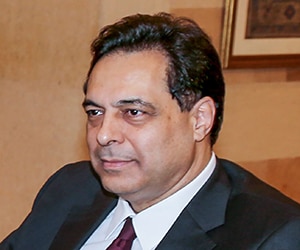Lebanon's political turmoil makes solving its deep-seated economic problems even more difficult.

Hassan Diab, Lebanon’s new prime minister, took over the post in January after four months of daily protests against elite corruption. The challenge: to save the world’s third-most indebted economy.
“This government takes over at a time when a lot of very difficult messages have to be delivered,” says Dan Azzi, former chairman and CEO of Standard Chartered Lebanon. “Who’s going to give the speech saying, ‘Oh, half your deposit is gone’ or ‘The Lira has been devalued’ or ‘I need to raise taxes’? The new team has nothing on its plate but bad news.”
Lebanon is entangled in an unprecedented liquidity crisis. The local currency has plummeted; inflation is soaring. Banks have imposed informal capital controls, fueling rising popular unrest. In early February, Diab’s team proposed a plan to end the financial crisis. The road map includes public-sector reforms, interest rate cuts and recapitalization of banks.
To boost liquidity and attract foreign deposits, the Bank of Lebanon instructed all commercial banks to raise their common-equity Tier 1 capital to 20% by June. “We have to avoid bankruptcies at all costs. A lot of banks will probably end up merging,” says Nassib Ghobril, chief economist at Bank Byblos, one of the country’s largest lenders.
There are currently 49 commercial banks registered in Lebanon, but some close observers argue this number could be cut in half with a national consolidation strategy. Diab’s government has also called on the International Monetary Fund, the World Bank and the European Union to step in with a loan package. But foreign donors say they will only help if Lebanon implements a serious reform agenda.
Either way, time is running short. In March, the new government must decide whether to repay a $1.2 billion Eurobond, or default on its debt. Other bonds worth $700 million and $600 million will mature in May and June.
“You either come up with a plan to pay all the bonds—forever—because you want to preserve the country’s credit rating so it can go back to the markets in two or three years and say Lebanon always pays its debts,” says Azzi, “or, if we are going to default, we might as well do it now. Not pay even in March. There is no halfway.”



